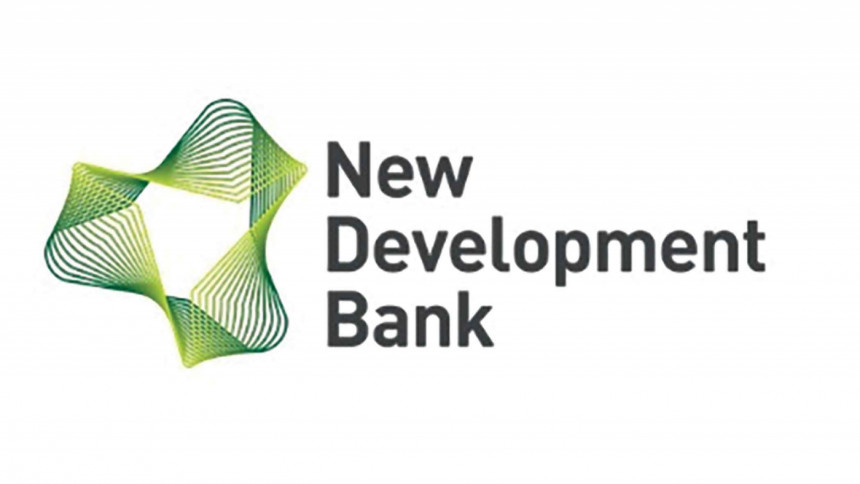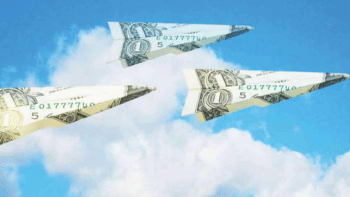Dhaka needs to pay $460m to join New Development Bank

Bangladesh will have to pay about $460 million in subscription fee to become a member of the New Development Bank (NDB) or BRICS Bank, a new international lender looking to mobilise resources for infrastructure and sustainable development projects.
Of the sum, $92 million shall be contributed to the bank's paid-up capital payable in seven annual instalments, according to a letter of the High Commission of India (HCI) in Dhaka.
It came as the high commission said India was interested in helping Bangladesh become a member of the NDB.
In December, Indian Prime Minister Narendra Modi invited Bangladesh to join the NDB.
On February 2, Dhaka expressed its interest to join the NDB at a virtual meeting with NDB President Marcos Troyjo.
At the meeting, the NDB president promised to consider Bangladesh's proposal.
"Bangladesh is eligible to fulfil all conditions for becoming a member of the NDB as the country has shown tremendous achievement in economic development during the last 12 years," said Finance Minister AHM Mustafa Kamal in a press release.
The High Commission of India (HCI) in Dhaka wrote twice, in August and November 2020, offering Bangladesh to be a member of the NDB.
"The HCI Dhaka avails itself of this opportunity to renew to the Ministry of Foreign Affairs and the Government of the People's Republic of Bangladesh the assurances of its highest consideration," the second letter said.
In August, the HCI requested Bangladesh to discuss in details for the membership of the NDB.
The NDB plans to include 16 new members. Among the prospective members, Bangladesh is a priority.
"We have to submit an analysis of the external debt situation, the gross domestic product and the strength of the economy to take shares of the NDB," said an official of the finance ministry said.
The government will now move to discuss the membership issue with the management of the NDB, he said.
The lender began its official journey on July 21, 2015, with an initial capital of $50 billion. The total capital of the bank is $100 billion.
Established by the BRICS states (Brazil, Russia, India, China and South Africa), the NDB is headquartered in Shanghai, China.
The purpose of the bank is to mobilise resources for infrastructure and sustainable development projects in BRICS and other emerging economies and developing countries to complement the existing efforts of multilateral and regional financial institutions for global growth and development.
NDB management is undertaking the first round of membership expansion. The membership is open to all UN members.
The rationale for membership expansion of the NDB is to increase capital base, improve credit rating, and make it a truly global development financial institution.
The management has shortlisted 20 targeted countries for consideration for membership.
Current members of the new bank are Brazil, Russia, India, China and South Africa. Each of the current members is scheduled to nominate two countries into the bank, according to the Economic Times newspaper of India.
So far, the bank has approved more than 50 projects involving over $15 billion within BRICS countries.
Apart from the founding members, each emerging developing country's shareholding at the NDB will be determined by its economic size relative to the combined size of all emerging market and developing countries, the Indian high commission said.
In the case of Bangladesh, its initial voting power is likely to be higher than at the World Bank and close to the voting power at the Asian Development Bank (ADB) and the Asian Infrastructure Investment Bank (AIIB), it said.
The expected financial commitment from new members would be relatively small in relation to direct lending and procurement benefits. Based on current authorised capital, each 1 per cent of shareholding at the NDB would correspond to $1 billion of capital, of which $200 million shall be contributed to the paid-up capital.
Countries may join as borrowing or non-borrowing members.
Bangladesh is a member of multilateral agencies and lenders such as the World Bank, the International Monetary Fund, the ADB, the Islamic Development Bank, and the AIIB.



 For all latest news, follow The Daily Star's Google News channel.
For all latest news, follow The Daily Star's Google News channel. 



Comments